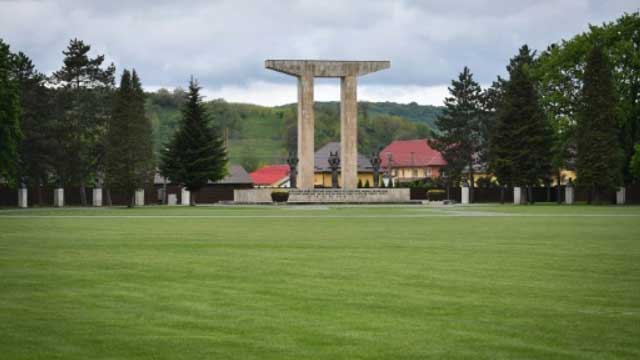
Blaj, Romania | AFP | Ion, a 72-year-old retiree from Romania’s minority Roma community, says he is used to living without rights.
“No matter where we go, to the town hall, to the police or to school, doors get closed,” says the former construction site worker, who lives on the outskirts of Blaj, a picturesque town in central Romania.
But Pope Francis’ visit to his town Sunday to meet the Roma on the last day of his trip has given Ion new hope.
“He will definitely speak about discrimination because we have no rights at all,” says Ion, who declined to give his full name.
Making up around 10 percent of Romania’s 20 million people, many Roma are marginalised and live in poverty.
In recent years, the daily life of Ion and his neighbours has improved due to initiatives by the town’s government: roads have been paved and their homes have received running water and electricity.
But the town’s Roma, numbering several thousands, still live mostly in precarious conditions on the periphery.
“It’s always been like this for the areas where Roma live, and not only in Blaj. It’s the same everywhere,” Petru Varga, 35, a town hall official, tells AFP.
– Vicious cycle –
Sociologist Gelu Duminica says conditions for the Roma have improved in line with the development of the country, which joined the EU in 2007, but in the poorest communities in urban and rural areas alike “nothing has changed”.
According to a study carried out last year by Duminica’s Impreuna (Together) association, which aims to fight discrimination, nine percent of Roma in Romania don’t receive an income, while 10 percent are dependent on welfare, compared to one percent for the rest of the population.
Fifteen percent are illiterate, compared to two percent for non-Roma Romanians.
“It’s a vicious cycle where limited access to education leads to poor access to the labour market,” says Duminica, who himself is Roma.
It is no coincidence Pope Francis, often seen as a defender of the rights of the most marginalised, has chosen the Barbu Lautaru district of Blaj, where the majority of the inhabitants are Roma, to launch an appeal for tolerance and social inclusion.
“The pope’s visit is a message for those who are marginalised, disregarded or not accepted by others,” says Mihai Gherghel, an eastern Catholic priest, who supervised the construction of the Blaj church, where Francis will hold mass.
– Differences pushed aside –
“I think he will bring help to those who really need it,” said Gheorghe Halas, a Baptist Roma pastor, who has been promoting Protestantism in Blaj since 2005.
Mainly Orthodox, like more than 86 percent of Romanians, many Roma have been attracted by neo-Protestantism in the last years, especially Pentecostalism — together with the aid that comes with it.
“The conversion is an important moment for stigmatised people who finally feel respected for what they are,” Laszlo Foszto, a researcher on national minority issues, tells AFP.
For the Pentecostals, “God doesn’t have any prejudices, he only sees their immaculate hearts.”
This attracts many Roma in search of recognition, according to some analysts, away from the very conservative and powerful Orthodox church of Romania, which has never apologised for its central role in enslaving the Roma for hundreds of years until the mid-19th century.
But come Sunday, religious differences will be pushed aside.
“All of Blaj will be a cathedral,” priest Mihai says.
 The Independent Uganda: You get the Truth we Pay the Price
The Independent Uganda: You get the Truth we Pay the Price



